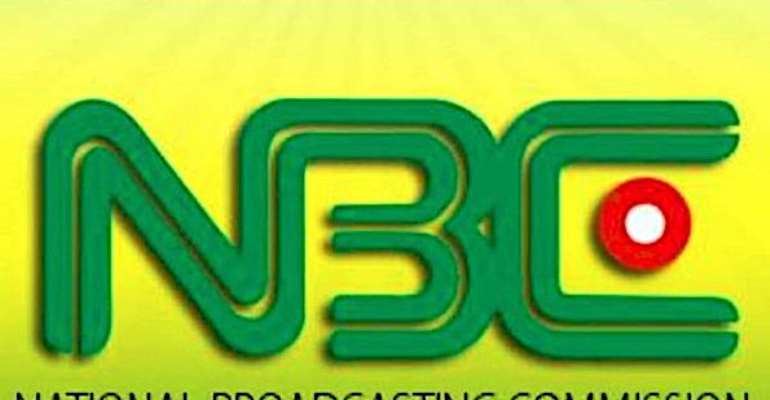National Broadcasting Commission Act Amendment And The Question Of Sanitising The Nigerian Socio-political Atmosphere

For Nigerians, the month of June in the current year wouldn't go down quickly into the annals of history without being remembered for the plethora of events which shook the entire nation and citizenry tomits roots.
Apart from the regular news of insurgency, banditry, hike in the price of goods, increase innthe exchange rate of dollar at the international market, the news of the federal government's ban on the popular microblogging social media platform, Twitter and more recently the decision to amend the broadcast code applicable to all media houses are two of the many issues that generated heated controversies and arguments.
These dual events which have attracted local and international attention are beginning to have rifle effects on the socio-political space. The riddle which this has put forward overtime is: are we back to the era of Adolf Hitler or of Draconianism where citizens where subject to strict and stringent conditions in the false premise of maintaining sanity and order?
Going through the chronicles of archives and records, history has always recorded the activities of tyrants christened leaders who always had the proverbial "mouthpieces" or "helpmeets" who were skilled in the art of subjecting oppositions and political enemies to rigour, this making sure their mouths was shut to prevent them from moving their tongues towards criticising their bosses.
In the current regime chaired by President Muhammadu Buhari, the sole personality skilled in this art is no other person than Lai Mohammed who heads the Ministry of Information and Culture.
From the early days of the Muhammadu Buhari adminstration, Lai Mohammed had proved an ever willing soldier and ready made cart which could be utilised under the sun and in the rain.
He had at several instances dared the god of human rights and free speech by enacting strict measures to ensure the suppression of free speech and the citizens right to freedom of opinion. He is quick to issue statements which are illogical and cannot hold water all in a bid to ensure the citizens give an approval to the excesses of the government. And for media houses who dared to flout his order, they have had to cough out millions of naira as fines payable to their negligence.
And so when he recently sent a proposal to the nation's legislative chambers seeking an amendment to the National Broadcasting Commission code, many weren't surprised as he has always proved to be the loyal dog to his boss.
We can't be quick to forget how he blamed the entire Nigerian citizenry for the rationale behind the action of Twitter to establish their West African Office in Ghana, which was smaller in all instances to Nigeria. What about his decision to blame the international community for the woes of the last year's Lekki toll gate massacre?
In the proposal, Lai Mohammed had intimated the house that he would want the new media (internet) and it's adjunct components to be captured in the bill which seeks to censor the activities of media houses relating to information dissemination, communication, issuance of licencing among other things. This ultimately was geared towards ensuring that the government had total control of the media.
Are Nigerian leaders afraid of the media or they have a dislike for free speech and access to information? Whey then should the current administration seek to have a control of the media which according to political philosophers is the vehicle which can be used reasonably by both the leader and the led to promote tranquility and also to stir up strife and conflict.
Acting on the false belief that the essence of the bill was to sanitise the nation's socio-political space would as it were be an attempt to dispose an avalanche of gold or diamond on the singular fact that it were transported in a dirty container or bag.
Beyond taking control of the media, there are profitable avenues to sanitise the socio-political space to prevent it from explosion due to the influx of fake news and rumour. To rather destroy a bridge that allowed you gain access to lower would be to harming oneself.
How about individuals who utilise the new media as a means of making ends meet? Or for Business organisations who make their proceeds from activities conducted over the internet?
I suppose the honourable minister and other calibre of Nigerian leaders haven't forgotten the fact that power is transient and that there is always a kickback to every action. Attempting to place stringent measures on the media in a bid to suppress the citizens right to express their opinions will sooner or later have dire consequences.
Robert Mugabe of Zimbabwe, John Magufui of Tanzania are some of the many political leaders that attempted to put a clampdown on the media during their lifetime. It never yielded positive results. What more can we say of attempting it in the present century where the forces of globalisation, internationalisation continue to be the principal actors driving day to day activities?
In any case, a war against the citizens of a country is one which nobody wins. The earlier we know this, the better.
